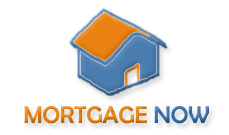
Applying for a mortgage is a very important financial decision and you should not mortgage your home before learning more about your options. If you rush head first into a loan without educating yourself about them first, you can cause yourself big financial trouble. If you want a mortgage, but need to learn about the process, this piece is for you.
Start preparing for home ownership months before you are ready to buy. If you plan to buy a house, you have to get your finances ready as soon as possible. This means you need to save up a decent sized nest egg, and make sure your debt is well situated. Hesitating can result in your home mortgage application being denied.
When you’re in the process of getting a home loan, pay off your debts and avoid new ones. If your other debts are low, you will get a bigger loan. If you are carrying too much debt, lenders may just turn you away. Carrying some debt is going to cost you financially because your mortgage rate will be increased.
Get all your financial paperwork in order, before going to your mortgage appointment at the bank. Showing up without the proper paperwork will not help anyone. Your lender is going to want this material; if you have it handy, you can save multiple trips down to finance office.
Always talk openly with your mortgage lender, no matter your situation. You might be inclined to throw in the towel when in dire straits, but it is possible to have a loan renegotiated. Give the lender a call and tell them your situation.
Set a budget at the outset and stick to it to stay in good financial shape. This will require setting realistic boundaries about your affordable monthly payments based on budget and not dreams of what house you get. No matter how wonderful your new home is, trouble will follow if the payments are too high.
Your mortgage payment should not be more than thirty percent of what you make. If you pay a lot on your mortgage, you might run into trouble down the road. Keeping yourself with payments that are manageable will allow you to have a good budget in order.
Why has your property gone down in value? The bank may hold a different view of what your home is worth than you do, and you need to know if that is the case.
Find a low rate. Banks want you to pay a high interest rate. Do not be their next victim. Shop around at other financial institutions so you have several options to choose from.

Before deciding on a lender, evaluate other financial institutions. Check online for reputations, and ask friends and family. Once you’re able to figure out the details, you can figure out where the best deal is.
What kind of mortgage is most beneficial to you? Not all mortgages are the same. Understand the costs and benefits associated with each type of loan before making your choice. Do your research and then ask your broker for advice.
The easiest loan to get is the balloon mortgage loan. These loans offer a short term with the balance owed at the end of the loan. This is a risky loan to get since interest rates can change or your financial situation can get worse.
Adjustable rate mortgages are referred to as an ARM, and they do not expire at the end of their term. However, the rate is going to be adjusted to match the rate that they’re working with at the time. You run the risk of paying out a much higher interest rate down the road.
Credit Score
Keep your credit score as high as possible. Review your credit reports from all three major agencies and check for errors. Banks usually avoid consumers with a credit score lower than 620.
Decide on your price range before you apply to a mortgage broker. If your lender decides to approve you for more than you can realistically afford, it will give you a little wiggle room. Whatever the case may be, don’t start getting overextended. Problems in your future could arise if you do this.
Sellers know you are truly motivated to buy when you are prepared with a letter indicating you are approved for a home loan. It shows that your financial background has been checked out and you are ready to go. Be certain that your letter of approval includes an amount that correlates with your offer on the home you wish to purchase. If the letter of approval is for more, then it indicates to the seller that you are able to, in fact, pay more.
Now that you are educated on mortgages, you may want to actually get one. Use the advice here to assist you in this process. All you need to do know is find the right lender.

